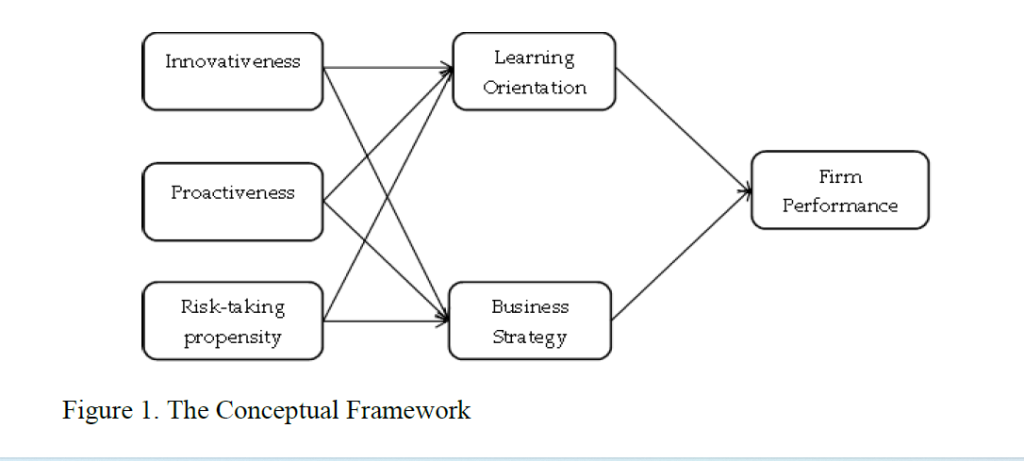ABSTRACT. This paper aims to address the mediating effects of learning orientation on the relationships between three dimensions (innovativeness, proactiveness, and risk-taking) of entrepreneurial orientation on SMEs’ performance in Thailand. Due to competition in a volatile environment, these dimensions of entrepreneurial orientation have been the focus of attention in many strategic management studies. This study is based on a survey, utilizing a sample of 379 SME managers in the manufacturing sector of Thailand. The data collected were analyzed using the partial least square structural equation modeling (PLS-SEM) technique. The results of the proposed model prove that innovativeness, proactiveness, and risk-taking ability of SMEs have a significant positive influence on the learning orientation and business strategy of firms. Further, the results of indirect effects show that learning orientation and business strategy mediates between the positive relationship of dimensions of entrepreneurial orientation and firm performance. The mediating effect of learning orientation and business strategy contributes to the resource-based view (RBV) and provides useful insights to managers regarding policy formation and implementation to improve business performance.
Keywords: resource-based view theory, entrepreneurial orientation, innovativeness, proactiveness, risk-taking, learning orientation, SMEs performance

